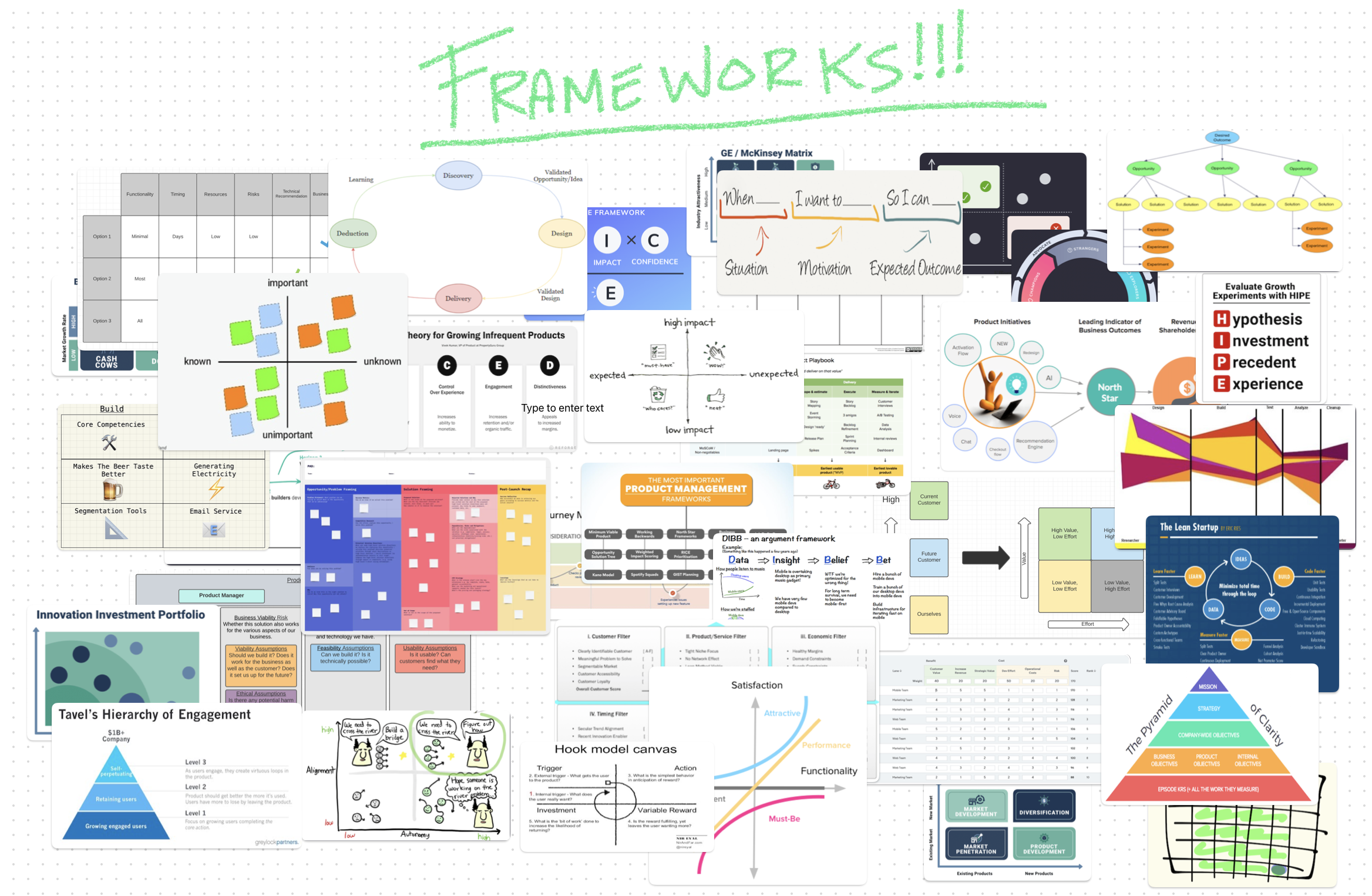What if I told you that product management frameworks were useless? That none of them works any better than the rest.
Product management frameworks seem to multiply by the second, there are too many to keep track of. I found all of these in about 20 minutes of searching. (Admittedly, some were taken from my blog, where I advocated for them).
Why do frameworks even exist? Because people want an easy, straightforward path to success. And we think that following what made others successful will make us successful as well.
The problem with frameworks is that they are most often created by high-performers. And they create them retroactively. They look back and say “Here’s what we did”. The assumption is that anyone can follow that same pattern and be successful. The secret is the high performer and their team were going to be successful regardless of how they did the work. So simply pattern-matching what they did will likely not get you the same type of outcome.
In a more concrete example, Amazon is famous for its working backward method. It has brought them a lot of success. But I would venture that Amazon would have been as successful if they had developed a different method for doing product. On the other hand, if another company were to start using the same method, it doesn’t guarantee them any level of success.
Josh Miller from The Browser Company, was recently on Lenny’s Podcast talking about the making of Arc. He spent a lot of the time talking about the unusual ways they do product. Early on in the conversation, he talked about why they have carved their own path rather than following more popular methods. His advice is, “Don’t take other's success as dogma.”
In the end, we need to build the right thing at the right time. We hope using a framework will lead us to this outcome. And while the structure they provide does bring value to our process. We cannot simply rely on following a framework to deliver success.
Now that I have dumped all over frameworks, let me tell you the only framework you need to be successful. Start working! Along the way, you’ll do all the things frameworks tell you to do. You’ll meet with customers, design, collaborate, and build. And you will figure out how to do all that in the way that works best for your team. If you push hard you’ll end up building the right thing at the right time, even if you don’t have a Kanban board or a Pyramid of Clarity.
I could be way off here (I probably am). I would love to hear how you have benefitted from frameworks, or more interesting would be the unique ways in which your team works.
